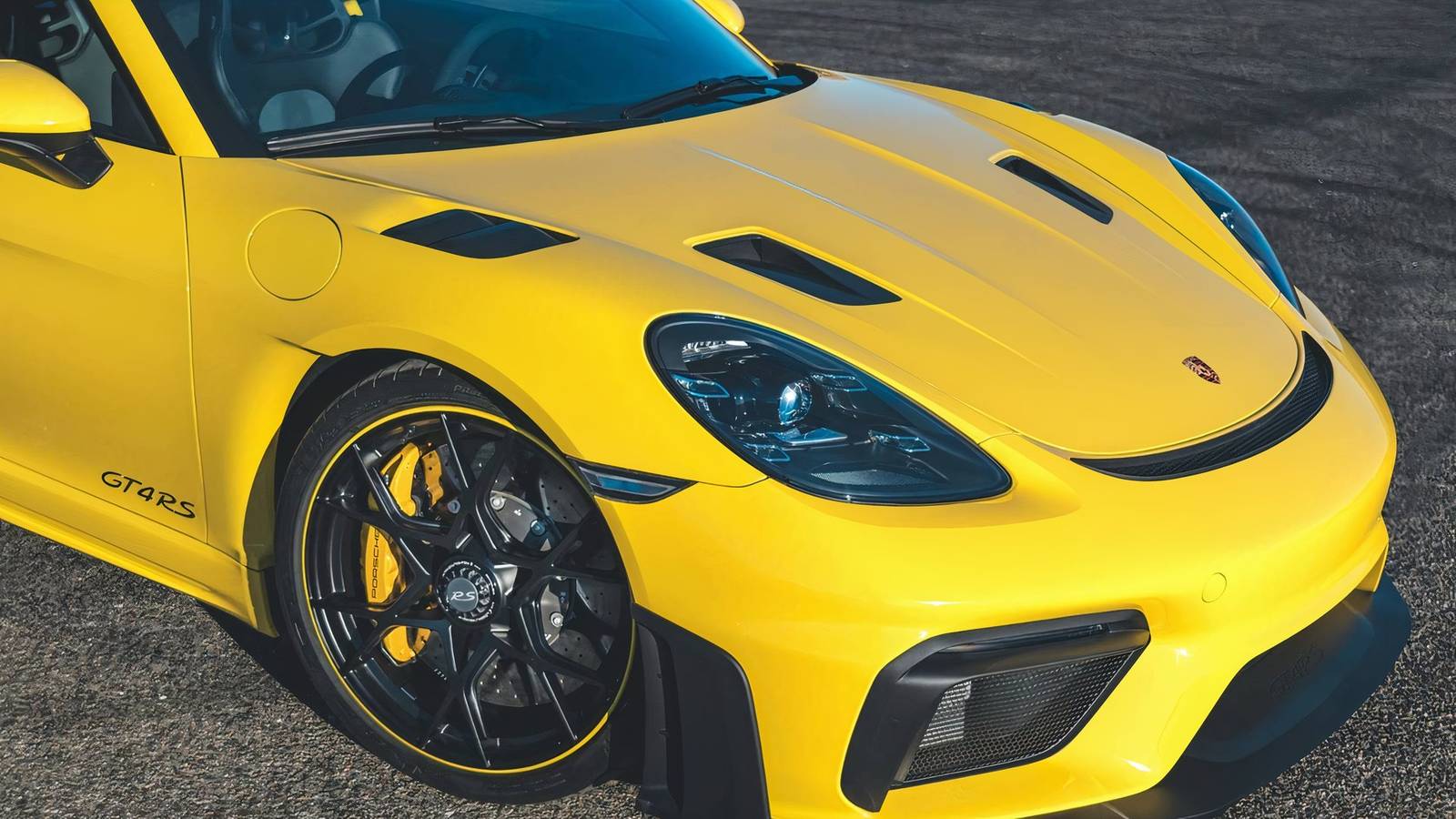The combustion-powered Porsche 718 Cayman and Boxster have been saved at the 11th hour. Those weren’t the exact words uttered by Porsche boss Oliver Blume in an investor call late Friday, but it’s about as good as confirmed after the head honcho said current combustion models would see production extended, certain EVs would be delayed, and more combustion models are still to come, including for “top” versions of the next-gen Cayman/Boxster. It’s great news for fans of combustion and Porsche sports cars, but for Porsche investors, there’s a big financial hit coming.
“The existing combustion engine models will remain available for a longer period. New generations of successor models have been added to the Cycle Plan for these vehicle models,” reads an investor press release from Porsche detailing its revised product strategy. The “new generations of successor models” specifically refers to the Cayenne and Panamera, which were already confirmed to take the V8 engine to 2030 and beyond, but have now been confirmed for a bright, combustion-powered future even beyond that.
It’s unclear from the release whether the 718 twins are included in the category of “existing combustion models” though, as orders have already closed for the current generation, and the electric next-generation is to be unveiled imminently. But on the investor call, a slide from a presentation confirmed that there will be “top ICE derivatives for new 718.” Now, that could mean the current generation is still dead, but it means the next generation won’t be all-electric, and, at the very least, the likes of the GTS 4.0, GT4, and GT4 RS will continue to use combustion.
While those popular models will no doubt get enthusiasts’ heart rates soaring, Blume had other interesting news about Porsche’s future plans. The new halo SUV positioned above the Cayenne, codenamed K1, was originally planned to be all-electric. This is no longer the case. Porsche refers to such models as “brand-defining vehicles,” and says that “due to market conditions, the new SUV series above the Cayenne, which was previously planned to be fully electric, will initially be offered exclusively as combustion engine and plug-in hybrid at market launch.”
The new platform that was to underpin the electric K1 SUV is also being delayed into the 2030s. This SSP 61 ‘Sport’ platform was being developed in conjunction with other VW Group brands and was also planned to underpin the electric Panamera and next-gen Taycan. But with this delay, Porsche will take a €1.8 billion hit (approximately $2.1 million). Ouch.
The focus on combustion and hybrid models means that the Macan, which went all-electric for the new generation, will get a combustion brother, although it may not wear the Macan name. It will, however, be significantly different from any other Porsche before it, in that it will use a front-biased all-wheel drive system.
EVs will still have a role to play in Porsche’s product portfolio, though, with existing models to be continuously updated. The electric 718 Cayman, Boxster, and Cayenne versions will still be launched on schedule – development of these is already nearly complete – but they will live alongside combustion versions for an extended period. The electric Cayman/Boxster may not even be called the 718 anymore, with Porsche’s release only referring to a “future two-door sports car in the 718 segment.” Blume admitted that EV adoption has drastically slowed compared to what was expected, and that the brand wants to continue to offer the models people want, not just force-feed them vehicles to comply with legislation.
Curiously, one model segment was left absent from Blume’s discussion points and Porsche’s press release: the Mission X hypercar. Originally envisioned as an all-electric hypercar with a 1:1 metric power-to-weight ratio and Nurburgring-record-setting capabilities, the Mission X concept was all but confirmed for production. But that was back in 2023 when the future still seemed electric. Now, the Mission X is looking more like Mission Impossible, and its absence from Porsche’s latest product strategy briefing suggests even it doesn’t know what to do with the hypercar.
“Today we have set the final steps in the realignment of our product strategy. We are currently experiencing massive changes within the automotive environment. That’s why we’re realigning Porsche across the board […] With a convincing mix of combustion engines, plug-in hybrids and battery-electric vehicles, we want to meet the entire range of customer requirements. In the medium term, this approach is intended to support our business model and strengthen our market position.”
– Oliver Blume, Porsche CEO
We want to hear from you! Share your opinions in the thread below and remember to keep it respectful.
Your comment has not been saved
This thread is open for discussion.
Be the first to post your thoughts.


















